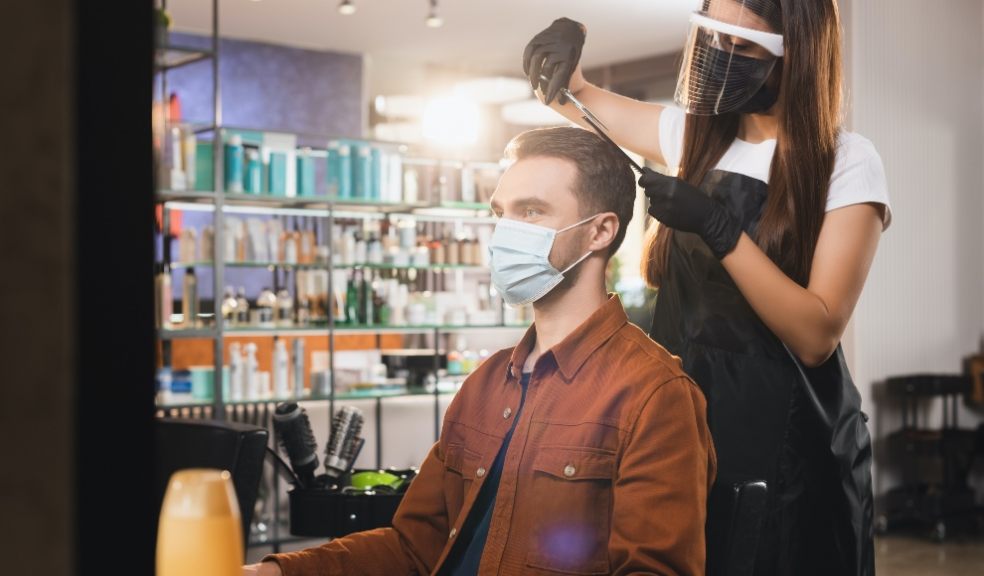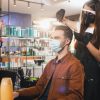
7 work safety tips for hair professionals
If you own a hair or beauty salon, you also have a responsibility to look after the health and safety of your employees and customers, so precautions must be taken where hazardous substances are used. You may not be aware of which products can harm you, so you must exercise extreme caution.
There are some precautions you should take in your saloon during the Covid-19 pandemic. But how can you ensure your safety at work? This article will provide you with seven work safety tips for your saloon or barbershop.
- Conduct a risk assessment
You must conduct a risk assessment and maintain a record of your employees. Make a list of everything that could cause harm. Because employees are the ones who interact with clients on a daily basis, they may raise more concerns. Create a plan to protect your employees and clients. And in it, make sure you sign up for a comprehensive insurance plan such as one offered by Simply Business.
With the COVID-19 pandemic, it’s also recommended to address the risk and measures to be taken. How will you put the COVID-19 regulations into effect?
- Train your staff
It’s best if your employees receive health and safety training. Before they begin working, make sure that they have received adequate safety training and that your employees are also trained on COVID-19 issues. They must understand how to deal with COVID-19 related safety concerns.
- Keep a health record
Recording health issues will help you on how to keep track of your employees and clients. In this record, you may note down those who have allergies both employees and clients so that you’ll know what to avoid with whoever got an allergy. It’s easier for frequent clients, you won’t need to keep asking them about their allergies, however, let your client verify or ask new clients about their allergies always. Some of your clients may have thin hair, and some of the chemicals will cause hair damage or hair loss, so you must know how to protect their hair from damage or loss. Additionally, understanding how to make batana oil can be beneficial, as it serves as a natural remedy that may help nourish and strengthen hair.
It’s also a great idea to do COVID-19 screening for your clients and employees. Test their temperature always and ask some of these questions.
- Have you been in contact with a COVID-19 patient recently?
- Do you have any flu-like symptoms?
- Have been coughing a lot lately?
- Do you have any chest pains?
- How is your sense of taste and smell?
After answering these questions you’ll have a way forward with the given results.
- Cleaning of work area and equipment
Every piece of equipment in the shop, as well as all surfaces, must be thoroughly cleaned and disinfected on a regular basis. When cleaning, use warm water and soap, and then sterilise. It's a good idea to clean as you go. Clean any equipment that comes into contact with skin before using it on the next client.
During the COVID-19 pandemic, you must frequently sanitize your equipment and all areas, including doorknobs. Allow for ventilation by leaving the windows and doors open. Clients shouldn't be given reading materials as this will lead to COVID-19 contamination.
Your toilets must always be clean, and you should always have a cleaning person checking on them. Provide running water, soap for handwashing, and hand sanitizer.
- Dermatitis prevention
Dermatitis is a type of eczema or skin rash caused by any irritant. It can affect the entire body, but it most commonly affects the hands. It’s caused by excessive water use, chemicals such as relaxers, shampoo, hair bleach, and cleaning chemicals.
When dealing with any of the above, you must wear disposable gloves to avoid this. Always dry your hands thoroughly and check your skin for any signs of dermatitis so that you can seek treatment as soon as possible.
- Communication with customers and a log book
As a hairdresser, you must always communicate with your clients. Allow your clients to make appointments in advance, and once you've determined the number of clients you can work with per day, stop accepting new clients to avoid crowds. Make certain that your customers are aware of any changes in your shop or working schedule.
Inform your clients about COVID-19 and how you’re dealing with the situation. Tell them about the procedures you're going through ahead of time so they know what to expect when they come over. Most work areas have been transformed in such a way that they’ll be safe from the COVID-19 pandemic, so your customers should be aware of this ahead of time. Display COVID-19 health guidelines and information so that your clients can access them at all times.
It's also a good idea to keep a logbook for both your clients and your employees. Keep track of what you use on each customer. This will assist doctors if one of your customers reacts to something.
- Have personal protective clothing
Personal protective clothing, such as disposable gloves, aprons, and face shields, must be worn by your employee. Face shields will keep them from infecting others with COVID-19. You could provide aprons to your customers to protect their clothes from hair and other damage.
Conclusion
The safety of your customers and employees is critical. They all need to know how to stay safe in your saloon, and this article provided you with work safety tips and how to avoid them. It also provided some COVID-19 safety tips for both you and your clients.



















